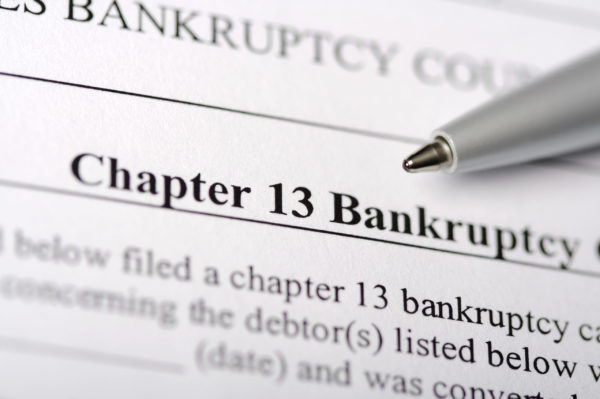Tenants and Bankruptcy: Chapter 13 Delinquencies
January 28th, 2020 | By: Ian T. Morton, Esq.
One of the toughest challenges for a landlord might be when a tenant files a Chapter 13 bankruptcy. Oftentimes, this type of bankruptcy can result in an ongoing delinquency that can last up to five years – a daunting prospect for a landlord’s bottom line. The automatic bankruptcy stay, which prohibits a landlord from attempting collection during this time, can then feel like an insult added to injury.
For a more detailed refresher, see our blog: Tenants and Bankruptcy: The Basics. However, as a short recap, a Chapter 13 bankruptcy is filed when a person has the income necessary to pay their debts, but they seek to “restructure” the debt through a payment plan. The “Plan” must be approved by the court and creditors, such as landlords, have the ability to challenge the payment terms proposed by a debtor/tenant. Once a Plan is approved, the debtor is required to follow it for a period that averages three to five years and it is overseen by a bankruptcy trustee to ensure compliance.
To help illustrate, a typical Chapter 13 bankruptcy might look like:
- Tenant becomes past due on rent.
- Landlord files a non-payment eviction/detainer case against tenant in state court.
- Tenant files bankruptcy and the automatic stay stops the landlord from proceeding on the non-payment case.
- Tenant proposes a repayment plan, which may be challenged by various creditors, including the landlord, and could take several months to get approved.
- Landlord files a claim to be paid on the debt.
- Tenant pays on the approved Plan, often with delinquencies owed to multiple creditors.
- Three to five years after the Plan is confirmed, the bankruptcy ends, and the debt owed to the landlord is either paid or the remaining balance is discharged/waived.
Each month during the Plan, the debtor makes a lump sum payment to the trustee. A portion of that monthly payment then gets distributed to each creditor, which typically includes the landlord. If the debtor ultimately makes all the payments required under their Plan, the debtor may be entitled to receive a discharge of some of the debts incurred before the bankruptcy case was filed.
This situation proves especially difficult to the landlord because while some tenants who file bankruptcy are current in their rent, many are delinquent at the time they file. This delinquency could carry on for several years because although the ongoing charges are being paid, payment on the existing arrearage is a lower “priority”, so it may take some time for payments to commence. Additionally, when there are multiple creditors, the monthly payment made by the debtor is split amongst them. This can delay or even prevent the landlord from being made whole.
Though this picture may seem bleak to some landlords, under certain circumstances, a landlord will have the option to seek to be excused from the automatic stay. This is done by filing a motion with the bankruptcy court. If successful, the landlord may be allowed to take legal action in state court to enforce its rights.
Because of the nature of a Chapter 13 bankruptcy, it is imperative that a landlord communicate with their attorney as soon as they find out about a tenant’s bankruptcy case. The sooner the attorney is aware of the filing, the sooner they can determine the best options to navigate the challenges of the bankruptcy and protect the landlord’s rights. It is also extremely important that landlords communicate with their attorney during the bankruptcy. If rent increases, notify the attorney. If required payments are not being made, notify the attorney. If the arrearage is increasing instead of decreasing, you guessed it – notify the attorney.
The Bottom Line: Landlords have rights when a tenant files bankruptcy. Though the nature of a Chapter 13 means rent payments could be delayed, there may be options available to protect a landlord. Otherwise, landlords may be stuck with an accumulating delinquency, making a challenging situation even worse.
Feel free to refresh your memory on the other bankruptcy issues Paletz Law has discussed in its previous blogs including:
[1] Tenants and Bankruptcy: The Basics
[2] Tenants and Bankruptcy: Lifting the Stay
[3] Tenants and Bankruptcy: Consequences on Unexpired Leases
Speak with a Paletz Landlord
Advocate Today
 - advice for small to mid-size businesses to help them better their day-to-day operations
- advice for small to mid-size businesses to help them better their day-to-day operations 